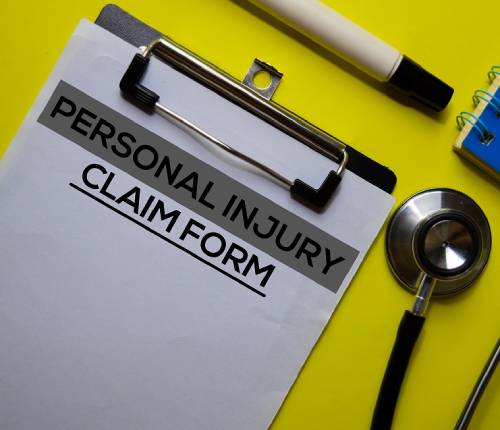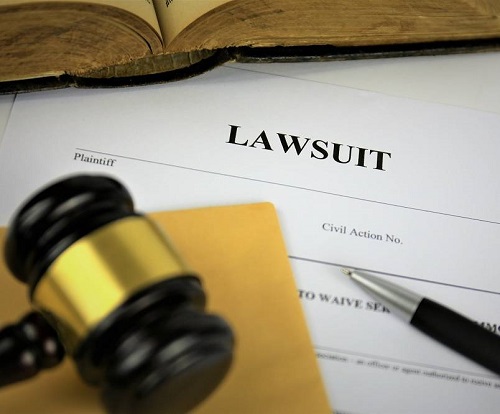If you sustained injuries in an accident that was not your fault, you probably have many questions regarding settlements and compensation. You should be aware that you may be entitled to compensation for physical and/or psychological injury if you are involved in an accident that resulted from someone else's negligenceA legal concept where a party fails to exercise reasonable care, resulting in harm to another person... and lack of action.
Presumably, one key question you're undoubtedly wondering is, “how long do personal injury cases take to settle once the legal process begins?” There is no definitive answer to the question. A settlement might be reached in a matter of weeks or months. However, a personal injury lawsuit can also last for a couple of years in some instances.

For example, a study by the U.S. Department of Justice found that personal injury claims, also referred to as "tort cases," took an average of 26.5 months (2 years, 2 months, and about 2 weeks) for a case to reach a jury verdict from the date it was filed. There is no specific timeframe with regard to how long personal injury cases take to settle, as a trial largely depends on the complexity of the claim and the personal injury lawsuit case.
Additionally, personal injuries can cost you a lot of money in medical bills, interfere with your ability to work, and have an emotional toll on you and your family. With all of the financial constraints that a personal injury can cause, settlement negotiations or litigations should be addressed as soon as possible.
How long do personal injury cases take to settle? Learn more about it below, along with the personal injury claim process, damages that qualify as personal injury, and more.
What Is The Personal Injury Claim Process
Understanding the procedure for the litigation of personal injury cases is a necessary part of knowing the answer to the question, "How long do personal injury cases take to settle?" Keep in mind that most personal injury cases are settled before a trial begins.
Due to the unique circumstances and factors of each personal injury case, we have developed a general outline of the procedure:
Receiving Medical Treatment For Your Injury
Getting medical attention for your injuries is one of the important steps in the personal injury claim process. Medical expenses account for the majority of compensation awarded in personal injury lawsuits. In order to receive proper compensation, you must gather medical documents and evidence such as diagnostic test results, treatment records, and consultation notes from doctors.
Severity Of Your Injury
A personal injury lawsuit will revolve around the severity of your injury. You must seek medical help from a healthcare provider after your injury. Also, for a better case evaluation, you must establish your injury's severity through diagnosis.
You must also determine that someone else's negligence contributed to your accident, which left you with costly medical bills, an inability to work, and other financial obligations.
In some circumstances, the insurance company for the party at fault will compensate you for your harm. Some insurance companies will get in touch with you soon after the accident to offer you a limited settlement amount and a promise to cover your medical expenses up to a certain value.
Remember that it’s best to talk with an experienced personal injury lawyer before accepting payment from any at-fault parties.
Meeting With A Personal Injury Lawyer

You should consult a lawyer to discuss your possibilities for compensation as soon as you establish the severity of your injury.
A personal injury attorney assesses your claim's monetary value once they have reviewed the medical evidence you have acquired. During the initial consultation, a lawyer will also review any relevant documents and information for your personal injury claim. For instance, if a car accident caused your injuries, attorneys will review the police report to identify who was primarily responsible for the collision. Hiring a knowledgeable lawyer is a crucial step that can help you obtain the just compensation you deserve.
Negotiating A Settlement
Your lawyer acts as the intermediary between you and your company's insurer. Insurance firms hire an insurance adjuster and a staff of attorneys with extensive experience in reducing a settlement offer for personal injury plaintiffs. Therefore, it's best to seek the advice of an attorney who perfectly understands the state law for personal injury claims in order to gain a positive decision for your complaint.
Your lawyer can also demand a favorable settlement that covers the medical expenses you incurred for your recovery, as well as any lost wages as a result of your inability to work.
Settlement Prior To Litigation
Typically, the defendant and plaintiff will either resolve the dispute or realize that it cannot be settled and that a lawsuit must be filed within 30 to 90 days. It is important that you have finished your medical treatment before beginning this step.
Filing A Personal Injury Lawsuit

If your case proceeds to litigation, your lawyer will file a personal injury lawsuit in the appropriate civil court. Although each state has its own pre-trial procedures, you should expect your claim to go to trial between one and two years after filing it. Moreover, personal injury lawyers ensure any civil action is filed before the statute of limitations expires.
Preparing During The Pre-Trial And Discovery Phase
Following the filing of your lawsuit, both parties will need some time for investigation, like gathering evidence and key witness testimony.
As such, during this time, each party may perform the following actions:
- Get depositions from witnesses before the trial commences
- Engage in settlement conferences
- Make motions to request or determine evidence
- Submit interrogatories to the other party
- Receive physical examinations
- Make other necessary preparations
Due to the advanced scheduling of court sessions, this period may take anything from six months to more than a year to complete.
Attending The Mediation
The judge presiding over the case may request that both parties attend a mediation session if negotiations between the two parties in a personal injury case fail. An impartial third-party mediator intervenes to settle the dispute and provide both sides with a favorable outcome.
Winning The Trial
In a situation where a settlement can’t be reached, then a trial becomes necessary. Each side makes its case to the judge or jury during a trial. It may last a few days to a week or so. Following declarations, testimony, cross-examination, and closing arguments, the judge or jury will deliver a verdict.
Why Is Your Personal Injury Taking So Long
The answer to the question, "how long do personal injury cases take to settle," is not always in your best interest. For several reasons, things could go south, and the process of reaching a settlement can be extremely difficult and time-consuming.
Below is a list of possible issues that could cause your case to have a longer timeline:
- Dispute on the case's facts. It's difficult to settle before the claim proceeds to trial if both sides dispute the facts and neither party can provide conclusive evidence.
- Dispute over the total amount and the extent of compensation to be provided. Different evaluations of the compensation owed will be made by each party. It's possible for the defending party to make a settlement offer that is insufficient to cover all of your injury-related expenses. The resolution of these disputes may make out-of-court negotiations challenging.
- Not being able to achieve Maximum Medical Improvement (MMI). You have not achieved maximum medical improvement if you still get treatment for your injuries. Prior to accounting for all your medical expenses, you should not try to reach a settlement.
If you are eligible for workers' compensation, find out how long it takes to receive your workers' comp benefits in this article by Disability Help.






